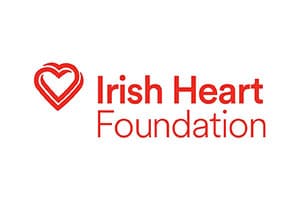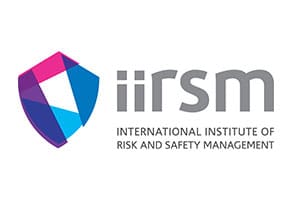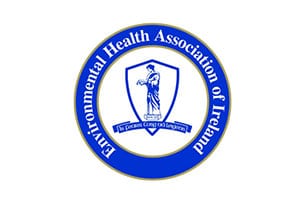Eye Doctors Urge Patients to Keep Scheduled Eye Care Appointments to Protect Vision
Continued roll out of Integrated Eye Care Team Model Essential to Delivering Specialist Care in the Community
This World Sight Day (Thursday, 8th October) the Irish College of Ophthalmologists (ICO) is reminding patients of the importance of attending their scheduled eye appointments to ensure continuity of care and to protect their vision.
The ICO, the training and professional body for eye doctors in Ireland, is urging patients not to put their eye health at risk by ignoring any worrying changes to their vision or postponing appointments with their eye care specialist due to COVID-19 concerns.
In a recent survey carried out by the ICO with its members, over a third (38%) of eye doctors said they had experienced a higher than usual volume of Did Not Attend (DNA) in their outpatient clinics during the phased resumption of services stage.
Over two-fifths (44%) of those surveyed also reported a noticeable decrease in the number of GP referrals from normal levels indicating that patients may not be seeking medical advice about eye concerns during the pandemic health emergency.
Marking World Sight Day 2020, Dr. Patricia Quinlan, President of the Irish College of Ophthalmologists and Consultant Ophthalmologist at the Blackrock Clinic said: “For people with eye conditions, the outlook has never been better due to advances in therapies but we can not stress enough the importance of knowing the risks and seeking medical advice if you have any concerns or experience changes in your vision.
Whilst the process may be a little different now, patients’ safety is a priority and all hospitals and healthcare professionals are taking the necessary safety precautions as outlined by the HSE. The ongoing review of your eye health and treatment plan is vital to protect your vision. Appointments are precious as clinics work in a reduced capacity environment so please ensure you attend.”
More than two-thirds (68%) of respondents in the ICO survey agreed there had been positive changes and new ways of working in their practice implemented during the pandemic that they would like to see continued. These measures included enhanced triage systems and improved patient appointment structures, along with an increase in virtual clinics and telemedicine use.
A third (33%) of respondents said they are using telemedicine regularly for suitable consultations, of which 63% agreed it has been of significant benefit during COVID emergency measures.
In response to the emergency phase of COVID 19, certain aspects of integration and collaboration were accelerated however we are acutely aware that the cessation of non-urgent care during the initial lockdown phase has resulted in a backlog of patient appointments. These waiting lists are further challenged with the restricted clinic capacity.
The importance of a sustainable and cost effective eye care model, accessible to all patients, has never been more urgent. The ICO and the Clinical Programme for Ophthalmology welcome the continued roll out of the Integrated Eye Care Team model in our Community Health Organisations, in line Sláintecare objectives, and the key recommendations contained in the national policy approved Model of Eye Care [2]. Many ophthalmology treatments are time sensitive, such as wet macular degeneration, glaucoma and amblyopia in children. Early diagnosis and treatment is crucial to preserve vision.
- Please keep and attend your eye appointments in the knowledge that the clinic has taken all necessary health & safety measures to provide a safe environment for examination or treatment. The ongoing review of your eye health and treatment plan is vital to protect your vision.
- If you are over 50 or have a family history of eye disease, regular eye checks are very important. Early detection and treatment will help prevent long-term loss of visual acuity.
- Lifestyle can have a big impact on your eye health. Eating a diet rich in antioxidant foods can help protect your eyes as you age, as can taking regular exercise to control your blood pressure, and not smoking.
Irish College of Ophthalmologists Membership Survey
The ICO membership survey was carried out via Survey Monkey between September 23 – October 2, 2020. Results are based on responses from 92 ophthalmologists working across public and private practice in the community and hospital setting.
About the Irish College of Ophthalmologists
The Irish College of Ophthalmologists is the training and professional body for eye doctors in Ireland. Ophthalmologists are medically trained doctors who have undertaken extensive further specialist training in order to diagnose and treat patient eye conditions, diseases and injuries.
The College’s primary focus is to maintain the highest standards of excellence in the delivery of eye care to patients in Ireland. We protect these standards through the delivery and oversight of the education of ophthalmologists in training, providing on-going education for ophthalmologists in practice, the provision of accurate medical advice to the media and public, and policy guidance on eye care delivery to the Irish government.
An estimated 270,000 people in Ireland are blind or visually impaired. In Census 2016, 54,810 persons, amounting to 1.2 per cent of the population, had a sight related disability, 3,092 higher than in 2011, representing a 6 per cent increase. Males exceeded females at all ages up to the 70-74 age group.
Blindness and vision impairment have a major and wide-ranging impact on people’s daily lives. In Ireland a significant proportion, particularly the older population who are more vulnerable to age-related sight loss conditions, continue to suffer from sight loss that is almost entirely preventable. Research shows that up to 75% of blindness and vision loss can be avoided through early diagnosis and treatment.
The most common eye conditions affecting patients in Ireland include age-related macular degeneration (AMD), cataracts, diabetic retinopathy, glaucoma and paediatric conditions including amblyopia and strabismus.
References:
https://healthvision.in/world-sight-day-eye-care-in-covid-times/
http://www.ncbi.ie/









